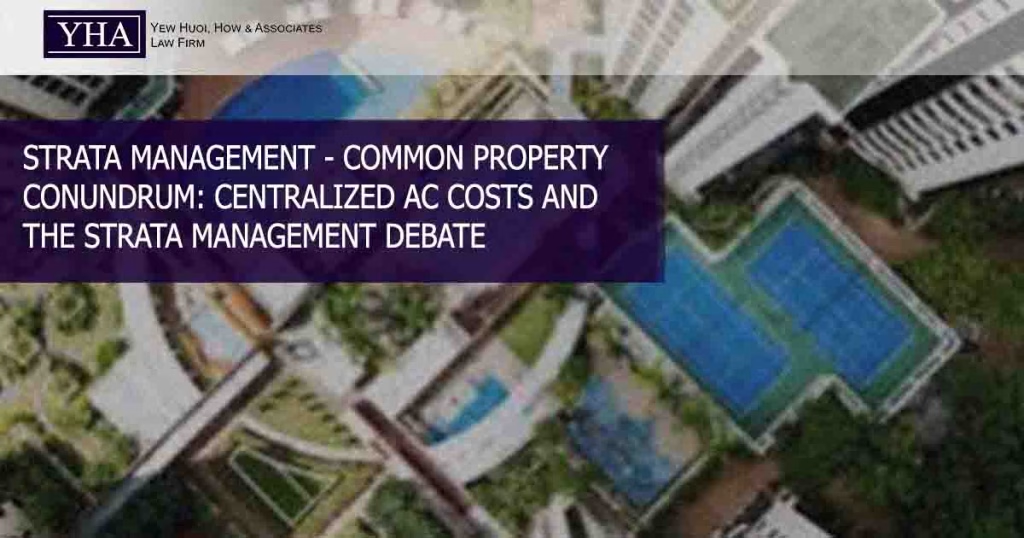Illustrative Scenario
The Plaintiff is the registered proprietor of a parcel located in Tower A of Menara UOA Bangsar. Tower A comprises 426 office parcels, while Tower B includes 3 office parcels, 9 retail parcels in the podium, and 2 parcels of multi-storey elevated car parks. The Defendant is the Management Body incorporated under Section 17 of the Strata Management Act 2013.
Tower A does not have centralized air-conditioning facilities (CACF); instead, chilled air is only supplied to common areas such as lift lobbies and corridors. Therefore, private parcel owners in Tower A must maintain their own individual air conditioning units. On the other hand, Tower B is equipped with a large CACF that serves chilled air to both common areas and some private parcels via air ducts.
The Plaintiff has raised concerns that the Defendant has unlawfully utilized funds from the maintenance account to operate, maintain, and service the CACF that benefits only certain parcels in Tower B. The Plaintiff argues that the Defendant should seek reimbursement from the private parcel owners who benefit from the CACF.
Key Issues
- Is the Defendant obligated to cover the costs and expenses associated with operating and maintaining the centralized air conditioning facilities (CACF)?
- Should the Defendant seek reimbursement for the maintenance and electricity charges related to the CACF?
Application to the Scenario
- Several private parcels in Tower B are owned and occupied by different occupiers. As long as the CACF in Tower B serves two or more occupiers of private parcels, it should be classified as common property.
- The argument of “exclusive use” is not supported by any statute, nor does it make logical or legal sense. Enforcing such an argument would lead to unnecessary hardship, confusion, and absurdities in the application of the Strata Management Act 2013 or the Strata Titles Act 1985.
The court is likely to dismiss the Plaintiff’s claim based on these considerations.
Reference Cases
- 3 Two Square Sdn Bhd v Perbadanan Pengurusan 3 Two Square & Ors [2018] MLJU 111, HC (followed)
- Julian-Armitage v The Proprietors Astor Centre BUP No 8932 [1998] QCA 111, CA (referred)
- Perbadanan Pengurusan 3 Two Square v 3 Two Square Sdn Bhd & Anor and another civil [2019] MLJU 1983, CA (followed)
Legislation Referred to
- Strata Management Act 2013 ss 2, 17, 59(1), (1)(a), (3)(b), (6)
- Strata Titles Act 1985 ss 4, 43(1)(a)
This update outlines the potential legal interpretation regarding the responsibilities of a Management Body in maintaining centralized air conditioning facilities within a strata development, particularly when such facilities are used by multiple private parcel owners. The courts are likely to consider CACF serving multiple occupiers as common property, thereby making the Management Body responsible for its maintenance without needing reimbursement from individual parcel owners.

